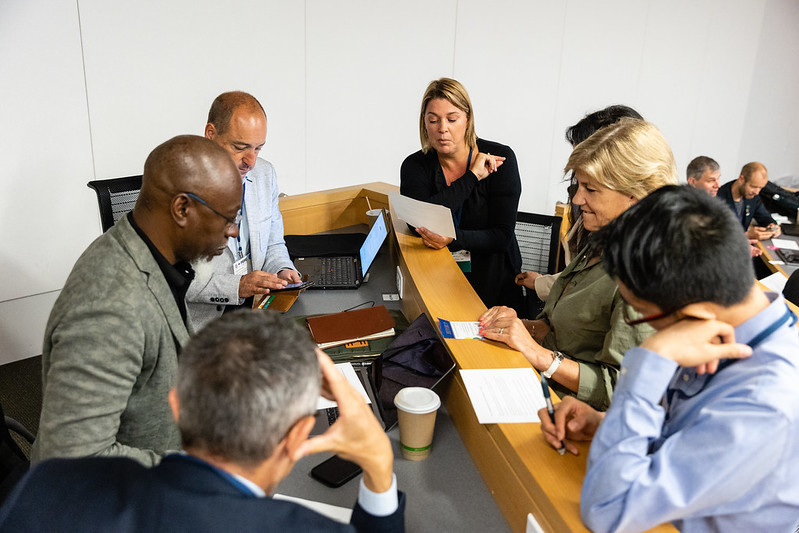Access

- Submit your institution’s Sharing Information on Progress (SIP) Report
- Access SIP reporting across institutions
Access

Access


As the world changes rapidly, higher education is under growing pressure to evolve. Accreditation bodies and ranking institutions are increasingly recognizing the need to prioritize societal impact, social responsibility, and the holistic skills students need to lead in a complex world. PRME launched a new webinar series to explore these changes, bringing together leaders from ranking and accreditation bodies, as well as PRME Signatory institutions to hear their firsthand experience.
Introduction
The second session of our Accreditation & Ranking Impact series featured a dynamic panel of expert speakers exploring why ranking institutions are increasingly emphasizing sustainability and societal impact and what that means for business schools:
Meredith Storey, Senior Manager, PRME
Benjamin Stevenson, Director of Business School Solutions and Partnerships, THE
Aigerim Raimzhanova, Vice President for Development & International Affairs, Narxoz University
Rethinking Ranking Through a Sustainability Lens
With over 2,500 institutions participating in THE’s Impact Rankings, it has grown significantly since their 2019 launch. These rankings assess universities based on their progress toward the 17 UN Sustainable Development Goals (SDGs), challenging institutions to look beyond academic performance and measure their real-world contributions. The discussion highlighted how rankings like these are encouraging institutions to integrate sustainability into every aspect of their mission, from curriculum design to institutional governance.
Stevenin noted, “A high ranking school realized that they added sustainability to their program only 4 years ago… They decided to invite their last 10 cohorts of MBA students for a free course to learn about sustainability.” This example illustrates how rankings are prompting even top-tier institutions to retroactively address sustainability gaps in their programmes.
Building a Culture of Lifelong Learning
Panelists emphasized the growing importance of lifelong learning and the role business schools must play in building the competencies needed to address global challenges. Aigerim Raimzhanova shared how Narxoz University is adapting to meet these expectations, not only by aligning programs with SDGs, but also by earning recognition for their leadership on SDG 16 (Peace, Justice and Strong Institutions).
Participants agreed that rankings are not just external measures of performance—they can also be powerful tools for reflection and transformation. By participating in evolving rankings, institutions have an opportunity to identify gaps, showcase progress, and deepen their commitment to inclusive, purpose-driven education.
How Reporting Can Lead to Institutional Transformation
Participants discussed how participating in SDG-related initiatives like PRME and THE rankings supports internal change. Narxoz, which now serves as vice-chair for SDG 16 in the Impact Rankings, uses this visibility to advocate for stronger societal impact practices within and beyond their university.
“Alignment with the SDGs gives us more structure to communicate what we already do, and it also pushes us to do more,” Raimzhanova noted.
She emphasized that visibility through rankings and reporting frameworks opens up opportunities for cross-sector collaboration, internal advocacy, and long-term cultural change.
Final Thoughts
The session reinforced a shared understanding that higher education must evolve alongside global expectations. As rankings like THE’s Impact Rankings prioritize sustainability and societal impact, institutions are finding both motivation and structure to embed these values across teaching, research, and strategy. With insights from leaders like Aigerim Raimzhanova and Benjamin Stevenin, the webinar highlighted how frameworks such as PRME and SDG alignment can drive not only visibility but also meaningful, long-term transformation in business education.